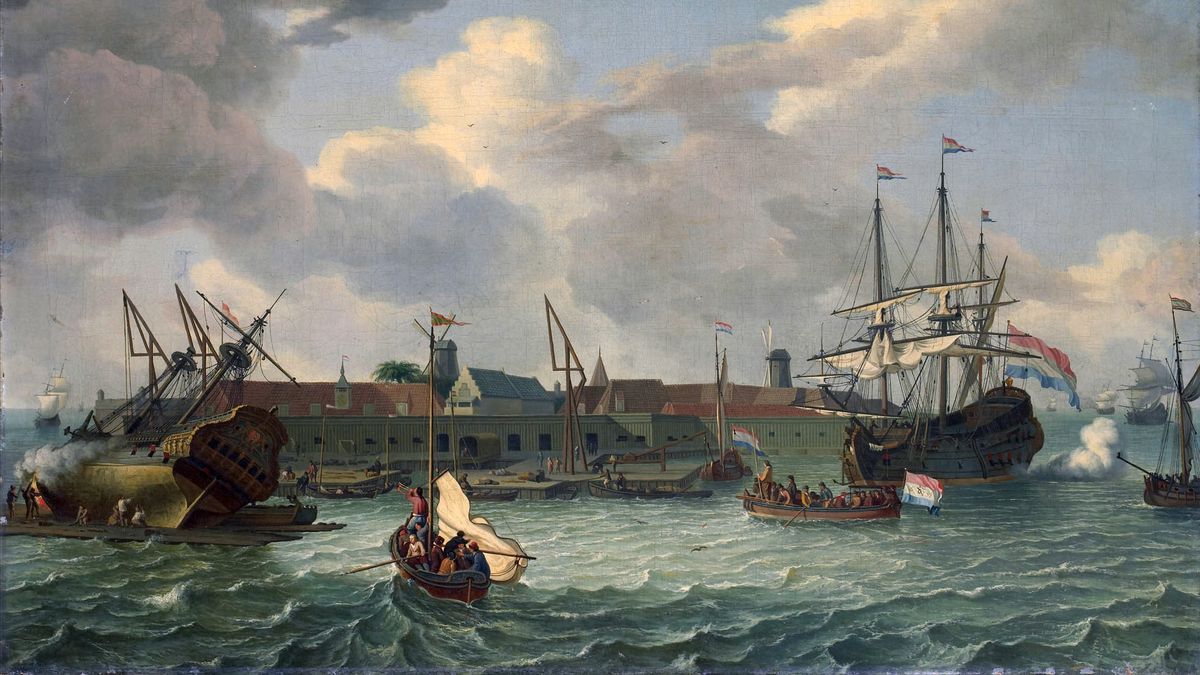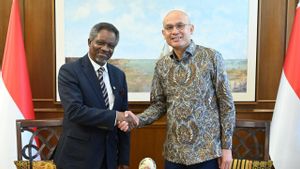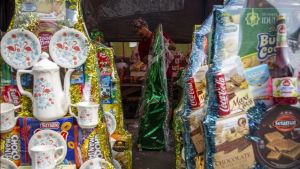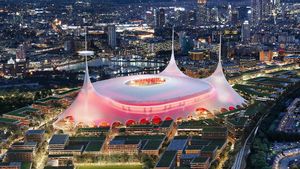JAKARTA - The Oud Batavia area or Kota Tua and Nieuw Batavia have not always been the prima donna in discussing the history of Jakarta. There is Onrust Island in the Thousand Islands which is also an important historical piece of the Capital City.
Onrust Island is definitely not just any island. History after history was born on this island. One of them, when the VOC Dutch trading partnership began to package a desire to monopolize spices in Jayakarta.
No wonder. To smooth its wish, the VOC took a plan to borrow Onrust from Pangeran Jayakarta in a negotiation that took place on 10-13 November 1610. Through these negotiations, the two of them signed an agreement that Onrust was completely borrowed by the VOC.
As revealed by Alwi Shahab in the Ghost City Batavia (2010). The contents of the agreement contained the VOC's authority to collect wood for the manufacture of its ships in Jakarta Bay. Not only that, the VOC, which began to play beautifully to dominate Jayakarta, also made Onrust a port and built a large shipyard in 1613.
"The existence of this shipyard is very meaningful for the Netherlands, considering that the voyage from the Netherlands to Jakarta took months, causing ship damage," wrote Alwi Shahab.

Allegedly, that's where the name Onrust began to emerge, which in Dutch means "never resting". The name is imprinted on the island. However, the name was famous only among the Dutch. As for the Indigenous people, most of them call the island as Pulau Kapal, because there are so many ships going back and forth.
Quoted from Robert Parthesius in his book entitled Dutch Ships in Tropical Waters (2010), he said that the shipyard in Onrust is also equipped with warehouses for cargo storage while the ship is being repaired. For this reason, carpenters on Onrust Island became known as skilled workers in repairing ships.
To the extent that, it was written in various literature, that Onrust carpenters were the best shipmen in the world. “... even when it was not yet named Batavia, many ships had stopped taking care of ships in Jayakarta Bay. Unfortunately, the shipyard on Onrust Island was destroyed by the British and an attack from the Mataram Kingdom in 1629. Fortunately, after this incident, Onrust again developed as the main ship maintenance center in Batavia. "
The best in the worldOne proof that Onrust Island has carpenters skilled in repairing ships comes from the famous adventurer and inventor of the Australian continent, Captain James Cook. Quoted from Bernard HM Vlekke, in a book entitled Nusantara (1961), Captain Cook in 1770 was forced to dock at Onrust to repair the ship "Endeavor" which was badly damaged after exploring half the world.
When the ship was repaired, Cook thought the carpenters at the Onrust shipyard were doing well and were very efficient. So Captain Cook is proud to recognize the quality of the carpenters at Onrust. "There is no shipyard in the whole world that is better than Batavia."
Not only that, Adolf Heuken also revealed the same thing in his legendary book entitled Historic Places in Jakarta (2007). The German pastor said that the carpenters in Onrust could repair all kinds of ships, "be it Arabic Dhow, Dutch Oostindievaarders, British Bark and Chinese Junk."
Therefore, it is natural that a head craftsman in Onrust - Baas van Onrust - lives like a prince. "Like most of the high-ranking officials in Batavia, Baas employed masons, who were placed under his power to run various private businesses. "Goods, spare parts, rope and tools that are expensive, because they need to be imported from the Netherlands, are often sold to make the foreman's pocket thicker," wrote Adolf.
Although carpenters are praised, those who work at a fast pace are often subjected to harsh treatment and low wages. Even so, people from all over the country are still interested in coming to try their luck on Onrust Island.
The proof, around the year 1775, it is counted more than two thousand people living in Onrust. Most of the population worked as carpenters and Dutch soldiers. Besides that, there were also about hundreds of slaves who were mostly women.

Sadly, Onrust's activity was stopped because of an attack from a British warship that burned the entire island in 1800. Not only that. Britain then continued the action of destroying Onrust in 1806 and 1810.
Luckily, many of the facilities have moved to the fish market. Major changes in Onrust began to appear during the reign of the Governor General of the Dutch East Indies, Herman Williams, Daendels (1808–1811).
The admirer of Napoleon Bonaparte not only shut down activities on Onrust, but he gave orders to vacate Onrust Island. "Therefore, the relics of the VOC era that can still be seen are only the foundations of a pier, a church, a few gravestones and a fort," wrote Adolf.
In the end, Onrust had changed its function to become a dumping ground for political prisoners and a haj quarantine center. The presence of the more complete Tanjung Priok Port in North Jakarta has gradually replaced the role of the shipyard on Onrust Island, which was previously known to never rest. Onrust was forced to take a long break.
Therefore, when people want to reminisce about the glory of Onrust Island, it may be that those who come are only greeted by ruins of buildings, remnants of household utensils, to enjoy the memories of when Onrust Island was still its heyday through poetry from someone's tombstone. The beautiful resident of Kapal Island, Maria van de Velde, who died in 1721. The poem reads:
Even though it's been buried,
If God were pleased,
He deserves to live for years.
However, Jehovah apparently got in the way of that by dying.
Maria is gone, Maria is gone!
Not! I take the word back,
Because it was said without thinking.
So, may my impudence be immediately fined!
Now Maria is really alive, when she is close to the creator.
The English, Chinese, Japanese, Arabic, and French versions are automatically generated by the AI. So there may still be inaccuracies in translating, please always see Indonesian as our main language. (system supported by DigitalSiber.id)













